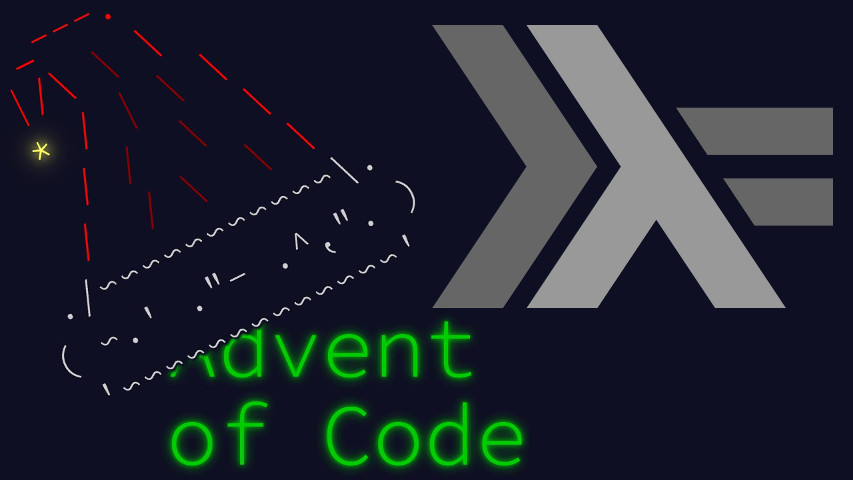Advent of Code day 10 “Hoof It”, is a simple little implementation problem that seems like it can’t go wrong brute-force, but we won’t fall for that. Let’s start with our literate Haskell traditional import header.
import Control.Arrow ((***),(&&&))
import Data.Array (Array,listArray,bounds,(!),indices,accumArray,assocs)
import Data.Char (digitToInt)
import Data.Foldable (fold,foldl')
import Data.Ix (Ix,inRange)
import Data.Monoid (Sum(Sum,getSum))
import Linear.V2 (V2(V2))
import qualified Data.Set as Set
type V = V2 IntWe’re given a rectangular1 map of elevations. We’re to find various statistics about trails, i.e. paths going from 0 to 9 in strict increments of 1.
Let’s start by parsing the input into a Haskell structure.
parse :: String -> Array V Int
parse s = listArray (V2 1 1,V2 h w) (digitToInt <$> concat raw) where
raw = lines s
h = length raw
w = length (head raw)All requested stats concern points of altitude 0, so we’ll gather
them by iterating on contour lines from 9 down. We’ll be extremely
generic here: we’ll accumulate on any monoid, starting on
a9, which is mempty everywhere except on
points of elevation 9, where it takes a generated value of its position
instead.
descend :: Monoid m => (V -> m) -> Array V Int -> Array V m
descend fromIndex m = foldl' f a9 [8,7..0] where
a9 = mapWithIndex (\i x -> if x == 9 then fromIndex i else mempty) m
f a h = accumArray (<>) mempty (bounds m)
[ (i',a!i)
| i <- indices m
, d <- [ V2 (-1) 0,V2 0 1,V2 1 0,V2 0 (-1) ]
, let i' = i + d
, inRange (bounds m) i', m!i' == h ]The iteration “adds” (in the monoidal sense) the values from level N to the “connected” values of level N − 1.
This is a bit abstract. Let’s reify.
- In part 1, we’re counting the number of reachable summits from any
given trailhead (i.e., trail endpoint of altitude 0). We’ll get
those by remembering, for each point, the set of distinct summits it
connects to. So we’ll initialize the monoid with 1-element sets
containing only that summit (
Set.singleton), and we’ll propagate them down using theSetMonoidinstance’s default operationSet.unionto keep the distinct list, aggregating over branching trails. We count the summits (Set.size) per trailhead. - In part 2, we’re counting the number of paths. So we initialize with
unique “ends there” paths (
const 1) and aggregate by summing. - In both cases, we report by summing (
Sumandfold).
solve :: Array V Int -> (Sum Int,Sum Int)
solve =
fold .
fmap (Sum . Set.size *** Sum . getSum) .
descend (Set.singleton &&& const 1)Yes, that Sum . getSum is very redundant. Just
reproducing the problem statement, ok?
A main wrapper and a missing utility and we’re done.
main :: IO ()
main = interact $ show . solve . parse
mapWithIndex :: Ix i => (i -> a -> b) -> Array i a -> Array i b
mapWithIndex f a = listArray (bounds a) $ map (\(i,x) -> f i x) $ assocs aThis concludes today’s solution. See you tomorrow!
Or is it square? It doesn’t really matter.↩︎



